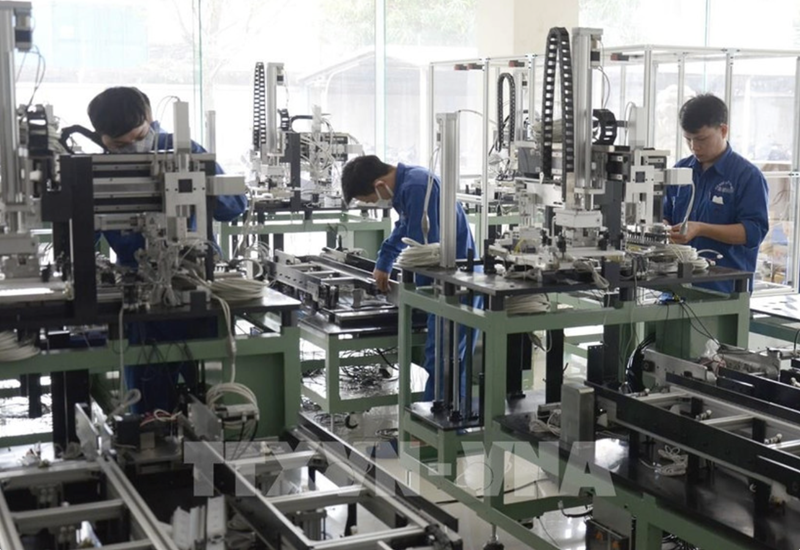According to the Ministry of Industry and Trade, Vietnam’s industry has made great strides, with a growing number of enterprises, enhanced production capacity, and notable advancements in certain key areas.
Currently, the country has over 40,000 enterprises operating in supporting industries, accounting for nearly 10% of the total industrial businesses.
    |
 |
|
Vietnam is working to turn supporting industries into a key link in supply chains. (Photo for illustration) |
The rate of locally made components in certain sectors such as automobile and electronics production, has increased but remains modest. The presence of multinationals like Samsung, Canon, Intel, and Bosch has provided a strong boost. These giants bring not only investment or technology, but also stringent quality and management standards, compelling Vietnam’s enterprises operating in supporting industries to upgrade themselves.
Many local enterprises have boldly invested in modern machinery, adopted international quality management systems (ISO, IATF), and gradually become Tier-2 and Tier-3 suppliers in the supply chains of big corporations. It is increasingly common to see Vietnamese companies that once produced only simple packaging or plastic components now supplying precision mechanical parts and complex molds for global corporations. These success stories are vivid proof of the resilience and adaptability of Vietnamese firms.
Phan Dang Tuat, Chairman of the Vietnam Association for Supporting Industries (VASI), noted that although the number of supporting industry firms is large, most of them remain small- or micro-sized, with limited finances, outdated technology, and weak management capacity. These make it difficult for them to meet large orders with high quality requirements and strict deadlines from multinational corporations.
Surveys on technology and production capacity conducted by independent financial institutions show that most supporting industry firms in the country still apply low to medium-level technology.
Insiders said weak investment in research and development (R&D) has left products lacking innovation and competitiveness. Meanwhile, training has not kept pace with market demand, creating a gap between labor supply and demand.
Despite efforts, links between Vietnamese supporting industry firms and foreign-invested corporations remain weak. Vietnamese firms often struggle to access information, technical requirements, or supplier evaluation processes of multinational firms. Conversely, multinationals face difficulty finding qualified local suppliers, forcing them to import most components. As a result, the rate of locally produced parts is still low, averaging 20–30% across most industries.
Nguyen Duc Trung, Chairman of the Board of Directors of the HBT Vietnam Precision Mechanics JSC, said that as global supply chains shift due to geopolitical concerns and trade tensions, Vietnam – with its strategic location, stable investment climate, and an extensive free trade agreement (FTA) network – has emerged as an ideal destination for multinationals, offering major opportunities for local supporting industry businesses.
The Government has introduced various incentives, including tax breaks, training support, and technology transfer programs, to promote the industries. Notably, the Politburo's Resolution 23-NQ/TW, which outlines orientations for building national industrial development policies through 2030, with a vision to 2045, designates supporting industries as a priority area.
Experts said supporting industry enterprises should leverage preferential rules of origin and tariff incentives under the 16 new-generation FTAs Vietnam has signed to boost their export competitiveness. They added that Vietnam’s open foreign policy will also contribute to attracting more high-quality FDI, which in turn will further raise demand for supporting industries.
Source: VNA